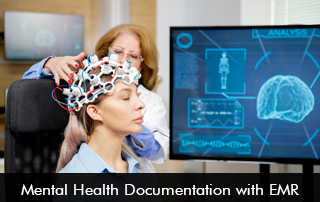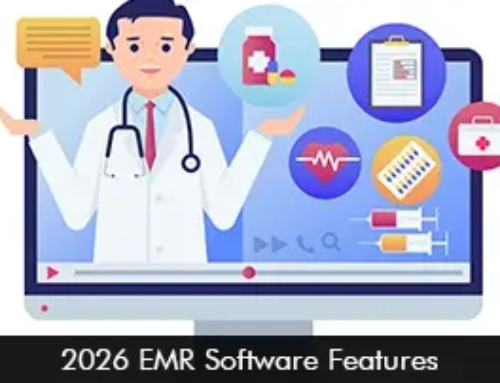In the rapidly evolving healthcare landscape today, mental health practitioners are under growing pressure to seamlessly blend empathetic care with meticulous record-keeping. Electronic Medical Record (EMR) Software has emerged as an indispensable asset for these professionals, providing a framework that is organized, safe, and streamlined for capturing the nuances of therapy sessions, the intricacies of treatment plans, and the trajectory of patient progress. Join us as we delve into how this technology is revolutionizing the documentation practices within the mental health field.
EMR Software Enhances Clinical Efficiency and Care Continuity
Treating mental health requires extended care, with patients’ requirements shifting over time. EHR Software empowers therapists to meticulously record each appointment, monitoring fluctuations in mood, changes in medication, and the results of therapy. Through tools such as standardized SOAP notes and evaluations for behavioral health, practitioners can uphold uniformity and reliability in their records. Maintaining this seamless flow of information is vital—particularly when patients move from one caregiver or environment to another—making certain that no crucial data is overlooked.
The American Medical Association (AMA) underscores the necessity of comprehensive and prompt clinical documentation for backing precise diagnoses and effective treatment strategies, especially within behavioral health contexts. EMR Systems assist clinicians in adhering to these guidelines while remaining dedicated to patient-focused care.
Protecting Patient Privacy and Meeting HIPAA Standards with EHR Software
Mental health records have personal details. The Mental Health EMR Software is built with robust privacy features like access controls based on roles, encrypted messaging, and data encryption. These measures make sure practices adhere to HIPAA rules and build trust between clients and their healthcare providers.
Therapists can feel secure documenting therapy sessions, knowing sensitive information is protected. Plus, digital records and audit trails improve responsibility and openness among teams, providing a crucial safety net in this era of strict regulations.
Making Workflows Easier with Personalized Mental Health EMR Software Templates
Modern EMR systems provide templates designed specifically for mental health professionals. They cover things like psychiatric evaluations, tracking patient progress, and support for DSM-5 coding. These specialized templates not only speed things up but also lower the chances of mistakes in documentation.
Advanced features in EHR Software, like being able to dictate notes, having ready-made mental health forms, and built-in treatment planning tools, let therapists get more done. This lets therapists focus on patient care.
Moving Ahead
EMR Software is transforming how mental health records are kept, making them more accurate, safe, and streamlined. Using these digital tools, mental health professionals can enhance patient care, stay compliant with regulations, and, ultimately, help patients achieve better results. The AMA emphasizes that thorough documentation isn’t just a necessity; it’s a fundamental element of top-notch care.








